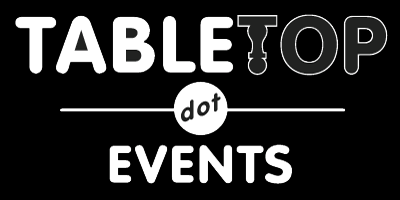
Tabletop.Events is ©2015-2026 BoardGameGeek, LLC. All rights reserved.
Q: What is the format of Protospiel Denver?
A: Protospiel is 3 days of unscheduled, unstructured time for tabletop game designers to playtest their games and get constructive feedback. It is held in a single ballroom filled with gaming tables.
People looking to start a playtest may have one of the “Players Wanted” cones provided by Protospiel Denver, but you may also approach anyone not currently engaged in a playtest to see if they are looking to play. If you join a group, your game may not be the first to be played. However, it is very common for a group to rotate through each player’s game.
Q: How much playtesting time should I expect my game(s) to get?
A: Protospiel thrives due to the community-driven atmosphere. As a general rule, all game designers should aim to put in as much playtesting time as they receive.
For example, if you get 4 players to playtest your game for 1 hour, you should aim to playtest other designers’ games for roughly 4 hours as compensation for the time players have given you.
Many designers find that they get almost as much benefit from playtesting other designers' games and participating in those feedback sessions as they do from playtesting their own games. Feedback sessions from other games can give them ideas for new games or solutions to problems they are facing with a current design.
Q: Do I have to have a game to playtest to attend Protospiel?
A: Not at all! Anyone interested in playing and giving constructive feedback on games in their development stages is welcome. If you don't have a game you'd like to test, you can purchase a Playtester Weekend badge.
Q: What stage of development should my games be in?
A: Your prototype can take many forms depending on the state your design is in and the areas of the design you want to test. It can be anything from words written on note cards to a professionally-printed box with commissioned artwork. The key is that you must be open to feedback. Protospiel is not a place to advertise a game you perceive to be finished; it is a place to improve your game.
Q: What should I expect from a playtest session?
An ideal playtest starts with the designer first explaining the stage of development of their prototype and what feedback they are looking for. Then, the designer explains the rules of the game. Play begins, with the designer either playing or sitting on the side to take notes.
As a designer, watching players play your game without playing yourself can be invaluable. It allows you to easily take notes and watch the body language of players as they play your game.
A designer should be willing to cut a playtest short if all useful information has been revealed by playing, for example, a few rounds of the game. This allows every game to be playtested in a timely manner.
Once a playtest is finished, a short feedback session generally occurs, with players discussing the things they liked or didn't like about the game. It is extremely unlikely that all the feedback you receive will be positive. Therefore, you must be able to graciously accept negative feedback and understand that it is in service of making your game better.
Q: How many game designs should I bring?
A: You can bring as many as you want, but be aware that you likely won't get more than 4-6 hours of time with your games on the table, given our structure of putting in approximately as much playtesting time as you receive.
Some designers like to bring a wide range of games so they can offer options and let a group of playtesters choose the game that sounds most interesting to them.
It can also be good to have an extra game with you in the event that you decide you want to act on feedback received at the event before doing another playtest on your primary design.
Q: What types of games are usually represented?
A: The designer community in the Denver area are working on games of several different types -- everything from mass-appeal party games, to puzzles, to light strategy games, to co-op games, to heavy euros, and more.
As a general principle, all types of tabletop games are welcome at Protospiel -- the key word there being tabletop. Since this will be one big room filled with tables, something like a LARP or mega game would be hard to execute. But, even for those types of games, if you want to get help from our community testing them, you can contact the organizers to brainstorm strategies to make it work.
Q: Can I bring children to Protospiel Denver?
A: Yes, provided that you follow these rules:
Q: If I am part of a multi-person design team, do each of us have to have our own Designer badge?
A: Every attendee must be badged, but only one member of your team needs a Designer badge. Any others can get a Weekend Playtester badge.
This being said, keep in mind that Protospiel Denver is run as a nonprofit model. All the money from badge sales will be reinvested into keeping the event running on a yearly basis.
We've set our policy as we have because we don't want the cost of 2 Designer badges to be restrictive for a 2-person design team. It's most important to us that we get to have you and your game as part of our community. However, if your budget allows it, buying a Designer badge for each person is a great way to support the event -- both this year and as we plan for years to come.